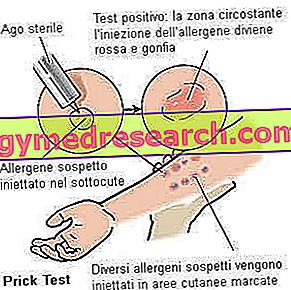Definition
Hepatitis D (also known as hepatitis Delta) is an inflammatory disease that affects the liver. More in detail, it is an infectious disease caused by a virus.
The virus responsible for the onset of this disease can trigger both an acute and a chronic infection.
Causes
Hepatitis D is caused by an RNA virus belonging to the Deltavirus family: the hepatitis D virus or HDV.
This virus is called "defective" because, in order to replicate itself, it needs the presence of the hepatitis B virus (or HBV). The disease, therefore, can arise only in the case in which an individual contracts multiple HDV and HBV infection (this is called co-infection), or in the case where the HDV is contracted by an individual who is already a chronic carrier of HBV (we speak, therefore, of super-infection).
HDV is transmitted through contact with blood and / or body fluids (such as vaginal secretions and sperm) of infected subjects. The transmission of the virus, therefore, can occur through the use of needles or syringes used by infected individuals (as can happen, for example, among drug addicts), through unprotected sexual relations with occasional partners and through the mixed use of objects for personal hygiene.
Furthermore, it is possible that pregnant women transmit the virus to the fetus.
Symptoms
The hepatitis D virus has an incubation period of 2-6 months, at the end of which the symptoms occur. The severity of the symptoms varies depending on whether you are in the presence of a co-infection or a super-infection.
In the case of co-infection with HDV and HBV the same symptoms appear in the case of acute HBV infection (such as nausea and vomiting, loss of appetite, fatigue, weakness, abdominal, muscular and articular pain, fever, light stools), dark urine and jaundice), but the resulting symptomatology is more serious than usual.
In the case of HDV over-infection, on the other hand, the virus will only make the already existing chronic hepatitis B worse, causing major liver damage and favoring the course of the disease towards complications such as cirrhosis of the liver.
In addition, hepatitis D can also evolve towards dangerous fulminant hepatitis.
Information on Hepatitis D - Drugs for the treatment of Hepatitis D is not intended to replace the direct relationship between health professional and patient. Always consult your doctor and / or specialist before taking Hepatitis D - Hepatitis D drugs.
drugs
Unfortunately, there are no real drugs for the treatment of hepatitis D.
However, in some cases a peginterferon- based drug treatment can be performed, but this therapeutic strategy does not always allow to achieve the desired results.
Peginterferon alfa-2a and 2b (Pegasys ®, PegIntron ®, ViraferonPeg ®): these medicines are normally used for the treatment of hepatitis B and hepatitis C in combination with antivirals. However, as mentioned, in some cases these drugs can be used for the treatment of hepatitis D.
Peginterferon alfa therapy may be useful in reducing the severity of the infection, but should be performed at high doses and for long periods of time. Moreover, in the majority of cases, the improvements induced by the treatment with the drug remain only as long as it is taken, while there is a worsening of the pathology when the treatment is interrupted.
Treatment with peginterferon alfa is effective and allows viral clearance (ie elimination of the virus from the body) to be achieved in only 15-20% of patients.
Prevention
In light of what has just been said, it is clear how the most important weapon, currently available to combat hepatitis D, is prevention .
The precautions to be taken to prevent the onset of the disease are the same as those taken to prevent the onset of hepatitis B. Therefore, the mixed use of syringes, needles and / or personal care items should be avoided and unprotected relationships with occasional partners should be avoided.
Vaccine
For the prophylaxis of hepatitis D there is no specific vaccine, however - since the HDV can be contracted only simultaneously, or in the presence of a pre-existing HBV infection - the people who received the hepatitis B vaccine (Hbvaxpro ®) are also automatically protected against hepatitis D virus infections.



